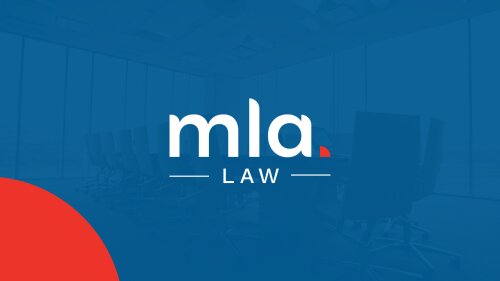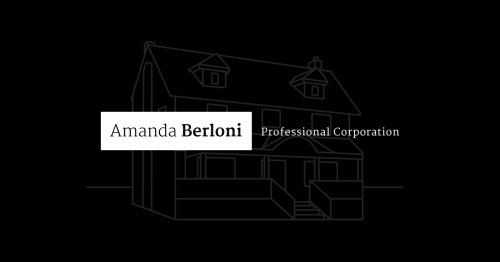Best Landlord & Tenant Lawyers in Greater Sudbury
Share your needs with us, get contacted by law firms.
Free. Takes 2 min.
Free Guide to Hiring a Real Estate Lawyer
List of the best lawyers in Greater Sudbury, Canada
About Landlord & Tenant Law in Greater Sudbury, Canada
Landlord and tenant law in Greater Sudbury, Ontario, is governed primarily by the Residential Tenancies Act, 2006 (RTA). This legislation sets out the rights and obligations of landlords and tenants for most residential rental properties across Ontario, including Greater Sudbury. Whether you are renting an apartment, house, or basement suite, the law is designed to protect both parties and create a fair and consistent set of rules for renting and managing rental property relationships. Greater Sudbury, being part of the Province of Ontario, follows all provincial laws regarding residential tenancies.
Why You May Need a Lawyer
There are several common situations where seeking legal advice is crucial in the landlord and tenant context. You may need a lawyer if:
- You are facing eviction or have received an eviction notice.
- Your landlord is not making necessary repairs or maintaining the rental property.
- There is a dispute regarding the return of your security deposit or last month’s rent.
- You believe rent increases are unlawful or not in accordance with the law.
- You are experiencing harassment or privacy violations from your landlord or tenant.
- There are disagreements about lease or rental agreement terms.
- You are unsure of your rights and responsibilities as a landlord or tenant.
- You need representation at the Landlord and Tenant Board or in court.
- You require assistance interpreting legal notices or responding to them.
A lawyer can help explain your rights, guide you through dispute resolution, and ensure your interests are protected.
Local Laws Overview
In Greater Sudbury, landlord and tenant relationships are regulated by:
- The Residential Tenancies Act (RTA): This provincial law covers most private residential units and outlines the rules for rent increases, maintenance, eviction, security of tenure, and procedures for resolving disputes.
- Landlord and Tenant Board (LTB): This is the tribunal responsible for resolving disputes between landlords and tenants according to the RTA.
- Local By-Laws: The City of Greater Sudbury may have additional property standards and zoning by-laws that landlords must adhere to, particularly regarding property maintenance, health, and safety.
- Human Rights Code: Protects tenants from discrimination based on race, age, sex, family status, disability, and other grounds.
Most landlord-tenant disputes in Sudbury are addressed through the Landlord and Tenant Board, and both landlords and tenants are encouraged to understand their obligations under the RTA and local regulations.
Frequently Asked Questions
How much notice does my landlord have to give before increasing the rent?
In Ontario, landlords must provide at least 90 days’ written notice before increasing the rent. Rent increases must also comply with the provincial rent increase guideline set each year.
Can my landlord evict me without any reason?
No, landlords must have a legal reason, such as non-payment of rent, substantial damage, or the landlord’s personal use of the property, and must follow the proper notice and application procedures outlined in the RTA.
My landlord refuses to make repairs. What can I do?
Tenants can file a maintenance application with the Landlord and Tenant Board. The RTA requires landlords to maintain the rental unit in a good state of repair and comply with health, safety, and housing standards.
Can a landlord require a security deposit?
In Ontario, landlords cannot require a security deposit. They can only collect a rent deposit for the last month’s rent, which cannot be used for damages.
When can a landlord enter my rental unit?
Generally, landlords must give 24 hours’ written notice and enter only for specific reasons (repairs, inspections, showing the unit, etc.). Immediate entry is only allowed in emergencies.
What should I do if I receive an eviction notice?
Read the notice carefully, note the reasons for eviction, and gather any relevant documents. You may file a response or attend a hearing at the Landlord and Tenant Board. Seek legal advice as soon as possible.
Can I withhold rent if my landlord is not making repairs?
No, tenants should not withhold rent. Instead, file a complaint or application with the Landlord and Tenant Board to address maintenance issues.
Do verbal rental agreements count?
Yes. Verbal agreements are legally valid in Ontario, but it is always best to have a written agreement to avoid misunderstandings.
What happens to my last month’s rent deposit when I move out?
The deposit should be applied to your last month’s rent. It cannot be used for damages or cleaning expenses.
Are there special rules for renting a basement apartment?
Basement apartments must comply with local zoning by-laws and Ontario’s Building Code and Fire Code. Tenants in legal basement apartments have the same rights as other tenants under the RTA.
Additional Resources
If you need more information or assistance regarding landlord and tenant matters in Greater Sudbury, consider the following resources:
- Landlord and Tenant Board (LTB): Provides information, forms, and dispute resolution services.
- Ontario Ministry of Municipal Affairs and Housing: Offers guides to the RTA and tenant rights.
- Sudbury Community Legal Clinic: Provides free legal assistance to eligible tenants.
- Ontario Human Rights Commission: Resources on human rights and housing discrimination.
- City of Greater Sudbury: Local by-law office for property standards and licensing issues.
Next Steps
If you require legal assistance regarding a landlord and tenant issue in Greater Sudbury, take the following steps:
- Gather all relevant documents, including your lease, correspondence, and notices.
- Make detailed notes about any issues, including dates and key events.
- Contact a legal clinic or consult a lawyer specializing in landlord and tenant law.
- If involved in a dispute, consider mediation or file an application with the Landlord and Tenant Board.
- Act promptly, as there are deadlines for responding to notices and disputes.
Seeking timely legal advice can help protect your rights and ensure a proper resolution of landlord and tenant matters in Greater Sudbury.
Lawzana helps you find the best lawyers and law firms in Greater Sudbury through a curated and pre-screened list of qualified legal professionals. Our platform offers rankings and detailed profiles of attorneys and law firms, allowing you to compare based on practice areas, including Landlord & Tenant, experience, and client feedback.
Each profile includes a description of the firm's areas of practice, client reviews, team members and partners, year of establishment, spoken languages, office locations, contact information, social media presence, and any published articles or resources. Most firms on our platform speak English and are experienced in both local and international legal matters.
Get a quote from top-rated law firms in Greater Sudbury, Canada — quickly, securely, and without unnecessary hassle.
Disclaimer:
The information provided on this page is for general informational purposes only and does not constitute legal advice. While we strive to ensure the accuracy and relevance of the content, legal information may change over time, and interpretations of the law can vary. You should always consult with a qualified legal professional for advice specific to your situation.
We disclaim all liability for actions taken or not taken based on the content of this page. If you believe any information is incorrect or outdated, please contact us, and we will review and update it where appropriate.











